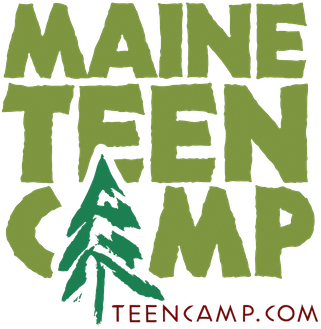Not Just Another Pretty Space...(naive melody)
- Matt Pines

- Nov 15, 2023
- 3 min read
Updated: Nov 27, 2023
One recent afternoon - cinematically lit, suitably chilly, fine and clear autumn perfection - I was working outdoors at camp and letting my mind wander in that way that only some fairly mindless fall cleanup and my favorite Talking Heads song ("This must be the place...") allows.

I’d been contemplating the way the afternoon sunshine reflected off the lake just so, the particular shade of blue of the sky, or the green of the freshly mown grass, or something. The place looked and felt, as it always does beautiful and special. But then the train of thought veered down a different track, and I was no longer thinking about the physical space of camp, but the metaphorical space that camp provides, and how it was so much more than “just another pretty space”.
As is the way with these things, if they aren’t written down immediately, the ideas melt away in fairly short order. But the idea that MTC is more than just a pretty space stuck with me, and allows me to rethink, or perhaps just think, about what it means all over again.
This will end up being a few related blog posts, I think. Because as I think about what kind of “space” Maine Teen Camp is, it starts to get a bit like Dr. Who’s TARDIS. It’s much more than it initially appears (and weirdly, like with the TARDIS, time also doesn’t work the same at camp during the summer as it does elsewhere. If you aren’t a sci-fi fan, don’t worry, this makes sense…).
Perhaps the most basic way to think about MTC, and indeed any good summer camp, is that camp “gives kids a space apart from their parents, to learn to be with their peers”. This bit of accepted camp wisdom (repeated often by a sage of Maine camping, Jack Erler) can be unpacked in several important ways, and I will get into those in a separate blog post.
Another way to think about camp is as a space, almost sacred, that is set apart from the rest of the world. A space largely free from technology, that is very deliberately close to nature. Perhaps these are two sides of the same coin, or perhaps one provides a tendency to the other, or becomes a pre-requisite for the other. Regardless, the absence of technology and the intentional proximity of nature are important choices that shape and inform the camp experience. Both also contribute to the sense of timelessness of camp, the “rhythm” that is the hallmark of being fully immersed in the camp experience. Blog post #2.
A third way to think about the space that camp represents is as a “rehearsal” space. For some, this might be the place (space plus meaning = place) in which they can practice “telling their own story”. For others it might be the place to learn new skills in a safe and supportive environment, or simply get a lot of repetitions in while improving existing skills (or skills that might have gotten a little rusty). In any case, part of the magic of camp is the relatively low stakes. There is little to be anxious about, whether it’s setting expectations for yourself for the first time, facing down a fear and performing in public, or perhaps just learning how to socialize with peers more effectively. I’ll expand on this in a 3rd blog post.
Finally, to wrap it all together, I want to think about the most important space camp represents – a space for connecting. A lot of recent research is backing up what many of us in camping have known for a long time, namely that connections are perhaps the most important factor in a healthy life, for adolescents and adults alike. And the thing is, connections don’t just happen. They require a setting (with nature being the best setting of all), they require available peers, and they require skills to initiate, cultivate, and grow. Skills that are learned, that require practice, maybe a little coaching, certainly some role modeling. I think this is THE role that camp plays in the year 2024, and it is a space designed specifically for this role. Blog post #4.
Links to follow



Comments